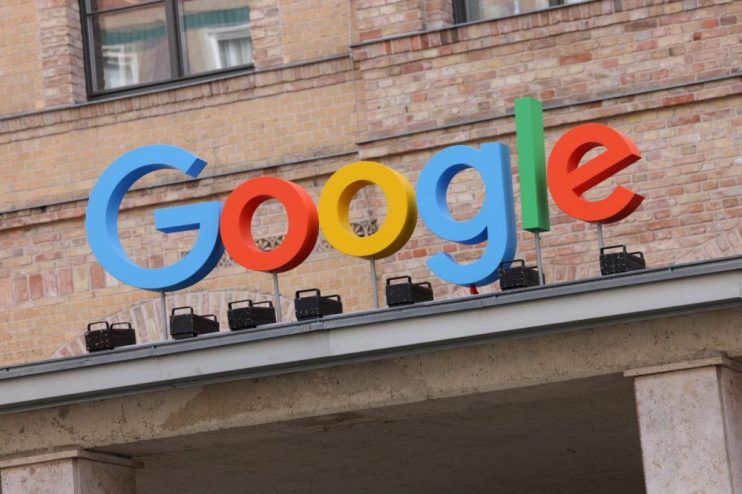Sam Altman’s ‘best world ever’ might just mean killing off Google ad revenue

Sam Altman is back at OpenAI and the rapid advancement of ChatGPT seems more secure than ever. “I think we’re heading toward the best world ever,” the chief executive said, confidently, two days before being ousted in a secret coup by his board – and then dramatically reinstated over the period of three days.
And so he might be right, but maybe not for the reasons he envisaged. Instead, ChatGPT could rid the world of the scourge of digital advertising.
No one will feel ecstasy at this news more than a visitor to the old website for this publication. Up until last week you will have found yourself engaged in a protracted battle with unseemly boxes striving to block your view and redirect you with clickbait-on-steroids slogans such as “Fiona Bruce’s secret wife” (she doesn’t have one) or “this is the material builders said you should never see” (feat picture of oozing orange pus coming out of what looks like an exhaust pipe). These dreadful floating cubes followed you down the page like crazy demons obscuring your view as you desperately squinted at snatched sentences of economic analysis.
This irksome reality could one day be obsolete. The rise in use of chatbots is disrupting the internet’s economic model, based around ads. We could have brighter future: an internet freer of ads.
The greater use of chatbots such as ChatGPT reduces the need for users to surf the web themselves. Instead of us scrolling through search engine results, AI can spit it out in a less than a second. This disrupts the current economic model, based on linger time, search positioning, number of clicks and visits.
The greater use of chatbots such as ChatGPT reduces the need for users to surf the web themselves. Instead of us scrolling through search engine results, AI can spit it out in a less than a second
Google is the monarch of the current realm. In 2000, following the Dot Com Crash that brutally murdered several tech startups, techies cut the ethical crap and monetisation began in earnest. Google’s advertising platform, Google Ads, accounted for 58 per cent of Google’s 2022 revenues – nearly $162.5bn. As tech consultancy Enders Analysis points out internet advertising “is a huge prize, bigger than TV advertising”.
Ads are everywhere. “Free websites have to serve ads, and deploy techniques that get you to spend more time on a site (like making pages longer), or view higher-value ads (like turning content into video unnecessarily), and to come back again (like pushing an email newsletter),” Enders Analysis reports.
The average person views up to 10,000 ads a day. Global search advertising spending was around $165bn in 2022. The model has been mutually beneficial up until now. Publishers pay search engines and fund the $68bn field of search engine optimisation to boost their ranking in results pages and then fill their pages with ads to make their money.
But with AI chatbots, “it looks like the incentives [between website owners and search engines] are not aligned” explains Joseph Teasdale of Enders Analysis. Chatbots will deliver answers immediately, with no need to click through links. This is making firms like Google squirm. “Ultimately the economic model has to evolve,” Paolo Pescatore of PP Foresight said. What this changes to is anyone’s guess.
Internet advertising has also been victim of a broader attack from Western governments – initiatives that try to stymie the use of third-party cookies and implement data privacy rules like GDPR. One survey, by CMO, found 20 per cent of companies invested more in traditional advertising (non-digital streams) as a result of these changes.
One Forbes article recently proved big brands – like Chase bank – had turned off millions of dollars of digital ad spending, and saw no change in business outcomes. This was pinned down to the epidemic of bots online and the wasted impressions brands pay to screen ads to… no one.
At the same time, influencer marketing has rocketed, disrupting the traditional internet ad. “In our studies, something like almost 40 percent of young people, when they’re looking for a place for lunch, they don’t go to Google Maps or Search. They go to TikTok or Instagram,” Prabhakar Raghavan, a Google senior vice president, said at a technology conference in July. Gen Z uses TikTok more than Google (yep), even for quotidian questions like “how to boil an egg”. The sector is predicted to hit $21bn this year from $6bn in 2022. This form of advertising – along with podcasters’ ads – is proving more valuable amongst younger audiences.
The internet ad isn’t fully dead, but it is slowly decomposing. As a keen surfer of the web, it is comforting to hear Teasdale’s reassurance: “search isn’t going away but its role as the gateway to the internet will be eroded.”